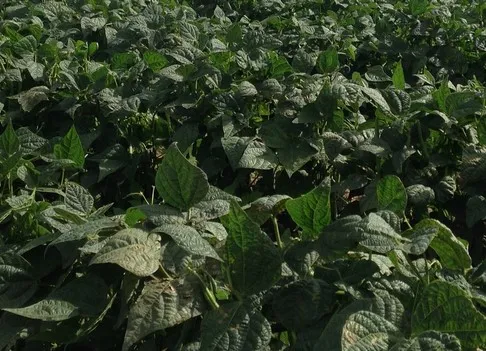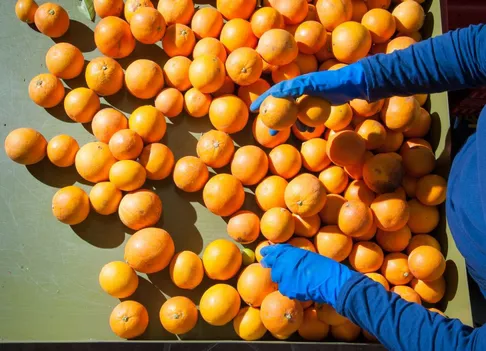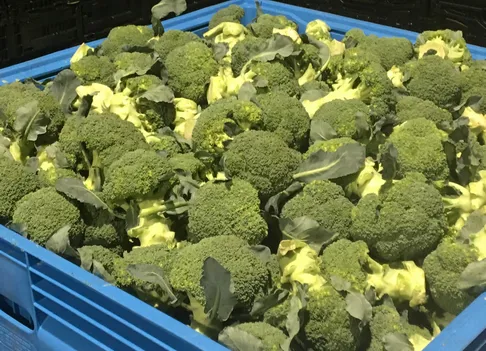Australia's farmers and producers have been given a boost during the COVID-19 pandemic, with the Federal Government announcing changes to visa arrangements, following concerns that access to labour could threaten many fruit and vegetable businesses.
The temporary changes allow those within the Pacific Labour Scheme, Seasonal Worker Program and working holidaymakers to continue to work in agriculture and food processing until the coronavirus crisis has passed.
“We can’t afford to see fruit rotting on trees and vines and vegetables left unpicked," Deputy Prime Minister Michael McCormack said. "It is vital our farmers maximise their hard work and economic returns. The agriculture sector relies on an ongoing workforce and we are committed to providing the means for that to continue while ensuring strict health and safety measures are adhered to, including visa holders following self-isolation requirements when they move between regions."

The industry had been campaigning for these changes for several weeks, including the Australian Fresh Produce Alliance (AFPA), who says the changes to visa arrangements to help growers secure the workforce required to keep producing fresh fruit and vegetables for all Australians.
The AFPA added that more than 80,000 people employed in fresh produce, include significant numbers of Australians, seasonal workers from the Pacific and Timor-Leste, and backpackers from around the world. Many of these workers are in Australia on fixed-term visas and without this extension would be remaining in Australia unlawfully.
“We welcome the announcement of these temporary visa changes,” AFPA CEO Michael Rogers said. “The reality is a number of these workers, particularly those from the Pacific and Timor-Leste are unable to return to their home countries due to travel restrictions. The alternative to the extension of their visa arrangements was leaving these people unemployed in regional communities with minimal access to healthcare. Enabling their ongoing employment is a great outcome for workers, farmers and their communities.”
The Australian Banana Growers’ Council (ABGC) CEO Jim Pekin said the new arrangements were welcome news for banana producers nationally and would ensure the continued supply of bananas to Australian consumers.
“As a national industry, we thank the Commonwealth Government for listening to industry concerns and ensuring the continued sustainability of its workforce in the face of the current coronavirus pandemic,” Mr Pekin said. “The banana industry harvests and packs 52 weeks per year. It’s workforce nationally is made up of approximately 40 per cent local workers and 60 per cent either backpackers or from the Seasonal Worker Program. Growers will still continue to employ local staff as well as retain backpackers and Pacific Islanders. In this current climate of uncertainty, this news allows growers to retain existing staff on-farm and within these local communities, which will reduce the need to seek workers from other regions or interstate.”

Photo Courtesy: NFF Twitter
Citrus Australia CEO Nathan Hancock also welcomed the changes but says the Government must ensure these bridging visas can be approved as soon as possible as the Queensland citrus harvest is underway.
“Our growers are ready to harvest thousands of tonnes of fresh Australian citrus for Australian consumers, and immediate access to these visa extensions is crucial,” Mr Hancock said. “We are pleased the government has made this decision and our growers will prioritise all health and safety requirements related to the management of COVID-19."
He also called on the Government to actively assist regional councils and growers prepare self-isolation arrangements with practical measures and guidance and also assist effective communication with backpackers about the need to register their self-isolation. Mr Hancock says growers are already adjusting housing arrangements and workplace practices in the orchard and packing sheds to cater for social distancing and hygiene requirements.
“Citrus Australia has provided advice to growers on how to manage their harvest, and their workforce, through this challenging period," he said. “The government has said it will work with states and territories on enforcement and sanction mechanisms. However, it is imperative that Federal and State Governments produce a uniform, accepted set of guidelines for all growers to follow.”

Minister for Agriculture, Drought and Emergency Management David Littleproud confirmed there are tough rules to ensure that COVID-19 is not transported to regional and rural communities that have thankfully not experienced the same level transmission. Before moving to other parts of the country, working holiday makers will need to self-isolate for 14 days and register at the Australia.gov.au website. Those who do not comply will face having their visas cancelled.
"It is essential for our food security that workers can move to meet these seasonal labour needs,” Minister Littleproud said. "At the same time, it is critical we manage this labour force to support the on-going health of regional communities. We are working closely with State and Territory Governments and industry to ensure appropriate health controls are in place for the ongoing health and well-being of our regional communities.”
Mr Rogers added that members of the AFPA have already instituted policies and procedures to safely manage their workforce and reduce risk of COVID-19 transmission on their farms, packing sheds and in the regional communities in which they operate.
The conditions under the Seasonal Worker Programme and Pacific Labour Scheme visa arrangements will be carried over to the new visa arrangements, continuing the strong links between Pacific seasonal workers and their employers. Temporary visa changes include an exemption from the six-month work limitation with one employer for working holiday makers working in agriculture as well as a further extension of their visa if it is due to expire in the next six months.
“These temporary visa extensions provide certainty to farmers that their existing workforce will still be available. Many of the roles undertaken by visa holders underpin full-time ongoing employment of Australians in regional communities, so these extensions really provide farmers with the certainty that they can keep full-time workers employed and keep producing fresh fruit and vegetables for Australians” Mr Rogers said.
To assist workers with managing the risk of COVID-19 spread the National Farmers' Federation (NFF) has developed a COVID-19 Workplace Guide, which has been sent for review by the Chief Medical Officer. Australians can register their interest in farm work at https://jobsearch.gov.au/harvest
